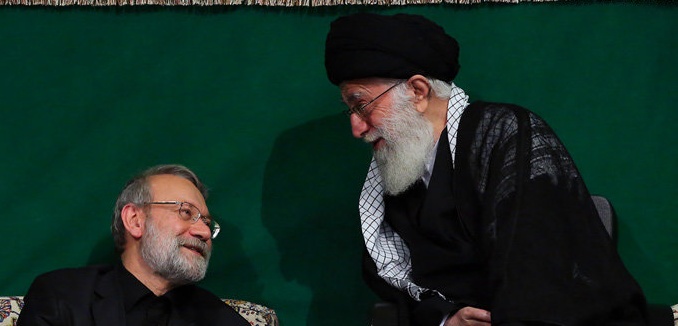A conglomerate controlled by Iranian Supreme Leader Ayatollah Ali Khamenei is poised to reap huge profits from new oil deals after the country’s petroleum market was opened up in the wake of last year’s nuclear deal, two researchers at the Foundation for Defense of Democracies wrote in a policy brief on Tuesday.
Saeed Ghasseminejad and Amir Toumaj reported that Iran’s Oil Ministry has “provided at least $2.2 billion in preliminary contracts to a subsidiary of the Execution of Imam Khomeini’s Order (EIKO), a conglomerate that Khamenei controls, to increase production from four oil fields.”
EIKO was founded in 1989 to administer properties that had been abandoned after Iran’s 1979 Islamic revolution. The scope of the original order has “grown into a vast business conglomerate – everything from agriculture to leisure resorts, parking lots, and residential complexes,” the researchers explained.
EIKO and 37 of its subsidiaries were sanctioned by the U.S. Treasury Department in 2013 for working “to hide billions of dollars in corporate profits earned at the expense of the Iranian people.” A Reuters investigation a few months later found that EIKO had “morphed into a business juggernaut” that was fully under Khamenei’s control and worth an estimated $95 billion.
The Treasury removed many firms from its blacklist in January that it had accused of supporting Iran’s illicit nuclear program. At the same time, it also removed EIKO from the blacklist, even though that firm’s violations had nothing to due with nuclear issues.
Foreign firms that seek to invest in Iran’s oil sector must partner with an Iranian counterpart, the researchers explained. “EIKO director Mohammad Mokhber [then] laid out an ambitious plan for EIKO to become Iran’s first major oil exploration and production company, to compete in the international market, and even to drill abroad,” the researchers pointed out. EIKO is currently in talks with European firms about partnering over four oil fields. EIKO also hopes to sign a contract to develop the Azadegan oil field in southwestern Iran, which is believed to have a 33 billion barrel capacity.
EIKO’s expansion plans, Ghasseminejad and Touraj write, “underscore an unsavory but unavoidable truth. In the oil sector, as in other key sectors from petrochemicals to telecommunications, it will be the regime’s most intransigent elements—not the Iranian people—that are set to gain the most from sanctions relief.”
The briefing is consistent with a recent Wall Street Journal report that “Khamenei and his allies look to be the [nuclear] deal’s big winners,” in part because of the economic opportunities the regime can now take advantage of. It also confirms many of the concerns expressed by experts before the deal was signed. For example, Ghasseminejad and Emanuele Ottolenghi warned in May 2015 that the groups most likely to be strengthened by the nuclear deal were businesses controlled by Khamenei. A few months later, the think tank’s executive director, Mark Dubowitz, and its vice president for research, Jonathan Schanzer, wrote that lifting the sanctions on EIKO would mean that “Khamenei will be free to invest billions around the world with impunity.”
[Photo: Mehr News ]




